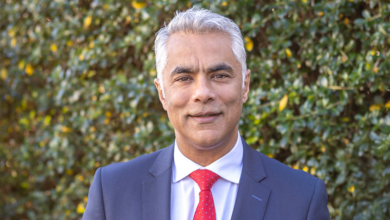Raising standards through shared education
 Vani Borooah and Colin Knox explain how the concept can change the education system for the better by helping schools to share resources and establishing new relationships between pupils.
Vani Borooah and Colin Knox explain how the concept can change the education system for the better by helping schools to share resources and establishing new relationships between pupils.
The Advancing Shared Education report by the ministerial advisory group set up to examine this topic has become overshadowed by media reporting on academic selection. In so doing, it has missed a key opportunity to focus on how education standards can be improved through shared education.
There are three key weaknesses facing the existing education system in Northern Ireland. It is iniquitous and it is highly segregated in the following ways.
Performance inequalities
Education outcomes are hugely variable: the average secondary school in Northern Ireland can only offer a little over half of its pupils five or more GCSE passes at A*-C grades, and only a third of its pupils five or more GCSE passes at A*-C grades, including English and mathematics. This is a major indictment of the education system.
The Chief Inspector of Schools’ recent report noted: “Some schools are failing to break a cycle of underachievement that has persisted over a period of time. All schools need to work as a united community to share and develop good practices across the controlled, integrated and maintained sectors, as well as further education, work-based learning and the informal sectors, to improve standards and educational outcomes for all learners.”
Access inequalities
Pupils from low income homes on free school meals do not get sufficient access to grammar schools; they constitute
17 per cent of post-primary pupils but only 7 per cent of grammar school enrolments. There is also a high level of educational underachievement amongst the Protestant population validated by a study which noted that “there appears to be a tendency towards elitism, and socially imbalanced pupil intakes within schools predominantly attended by Protestants” (Purvis).
Segregation
There is a high level of segregation in our schools and limited change in patterns of enrolment across controlled and maintained schools since the Belfast (Good Friday) Agreement. Catholic maintained secondary schools and voluntary Catholic grammar schools are almost exclusively populated by pupils of that faith.
Catholic parents, on the other hand, are much more likely to send their children to controlled grammar schools (some 7 per cent of controlled grammars are Catholics) than vice-versa (less than 1 per cent of Protestants attend voluntary Catholic grammar schools). Yet, the Department of Education’s Community Relations, Equality and Diversity in Education policy makes a clear commitment to shared education through encouraging “greater sharing and collaboration across and between all educational settings on a cross community basis”.
What can be done to address these systemic weaknesses?
Programme for Government
Current education policies on school improvement and tackling segregation need an overarching and supportive mechanism to raise educational standards, close the performance gap and create a more inclusive schools system.
Two key commitments in the Programme for Government 2011-2015 on shared education offer an opportunity to raise standards, tackle inequalities and address segregation in our schools. The Programme for Government commits to ensuring that all children have the opportunity to participate in shared education programmes by 2015 and substantially increase the number of schools sharing facilities by 2015.
Shared education
Shared education refers to schools from different sectors working together in a sustained process ranging from two or more schools making shared use of specialist facilities, through to co-ordinated timetabling, and pupils taking classes across a network of schools.
The focus of shared education is delivering core curriculum activities where teachers and pupils work together across schools to achieve higher quality educational experiences. Shared education threatens no-one’s identity but recognises that schools have inter-dependent relationships and promotes positive collaboration to support the common good.
Shared education provides a mechanism for peer learning whereby schools which are educationally stronger in one area(s) of the curriculum are incentivised to collaborate with schools which can reciprocate through their strengths: a ‘partners in excellence’ model. There is significant research evidence which indicates that peer learning leads to improvement across schools in: teaching and learning; pupils’ behaviour; and education achievement.
Partner schools can offer joint classes, mentoring, teacher exchanges, shared teachers, and joint training days. As a consequence, shared education will result in: a wider curriculum choice for pupils across the schools involved; encourage pupil mobility between schools through shared classes; and support collaborative staff development activities.
Education outcomes
Maintaining a focus on raising educational outcomes through ‘partners in excellence’ school collaboration means that all schools, regardless of pupils’ background, have the opportunity to improve. The overarching theme underlying this approach is that the rising tide of peer learning, between schools with different strengths, will lift every school’s educational boat.
The mechanism through which this peer learning will take place is shared education. Since schools which are currently competing for the same pupils are unlikely to want to collaborate (because they are from the same managing authority) then, by default, the collaborative partnerships will be cross-community. This, in turn, will have significant reconciliation benefits for students and society in the medium term.
In summary, shared education will complement the Minister’s agenda on improving education standards and, in so doing, contribute to a more reconciled society in Northern Ireland.
Vani Borooah is professor of applied economics and Colin Knox is professor of comparative public policy at the University of Ulster’s Institute for Research in Social Sciences.






